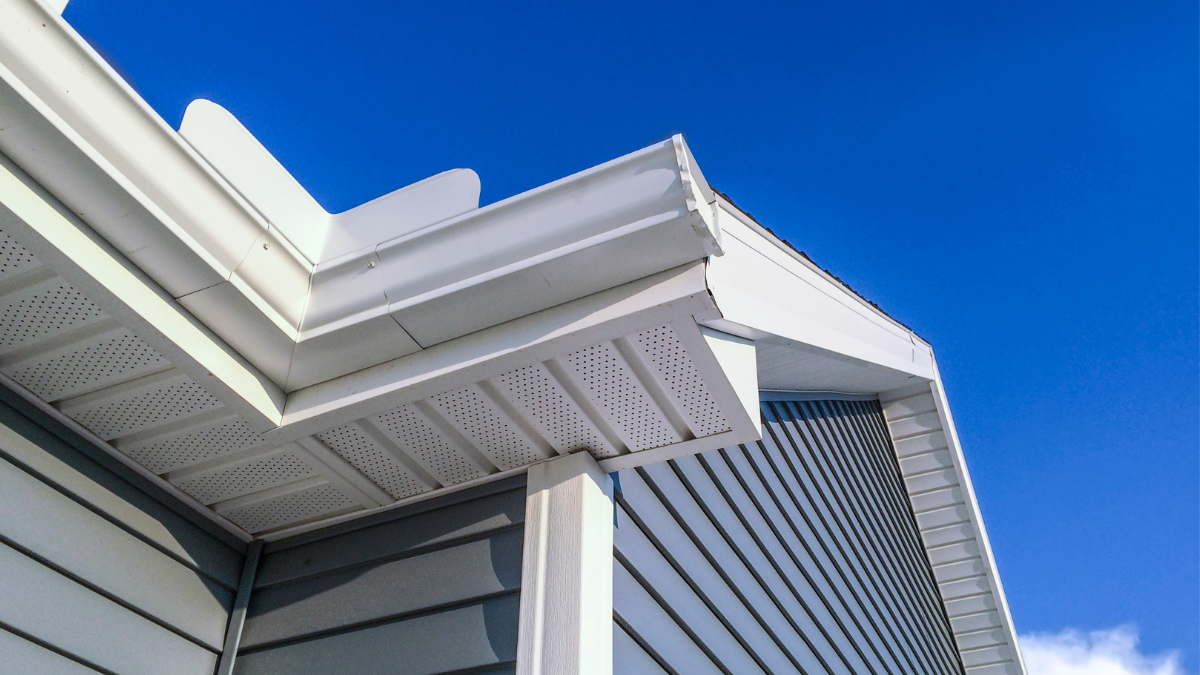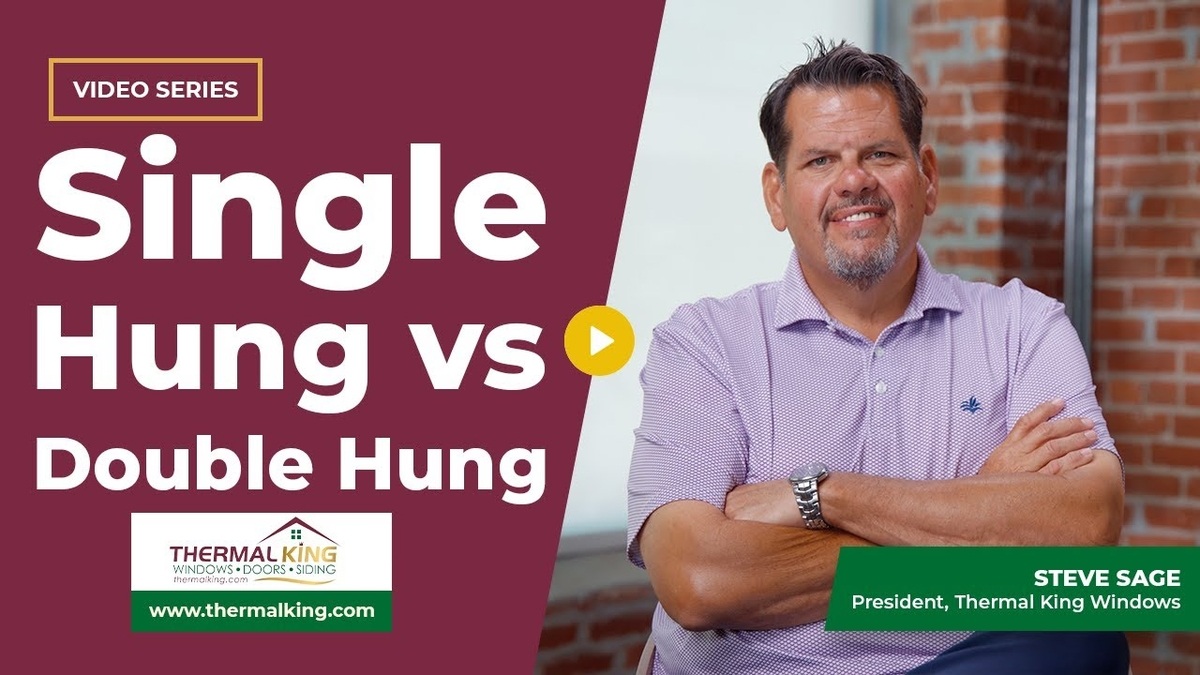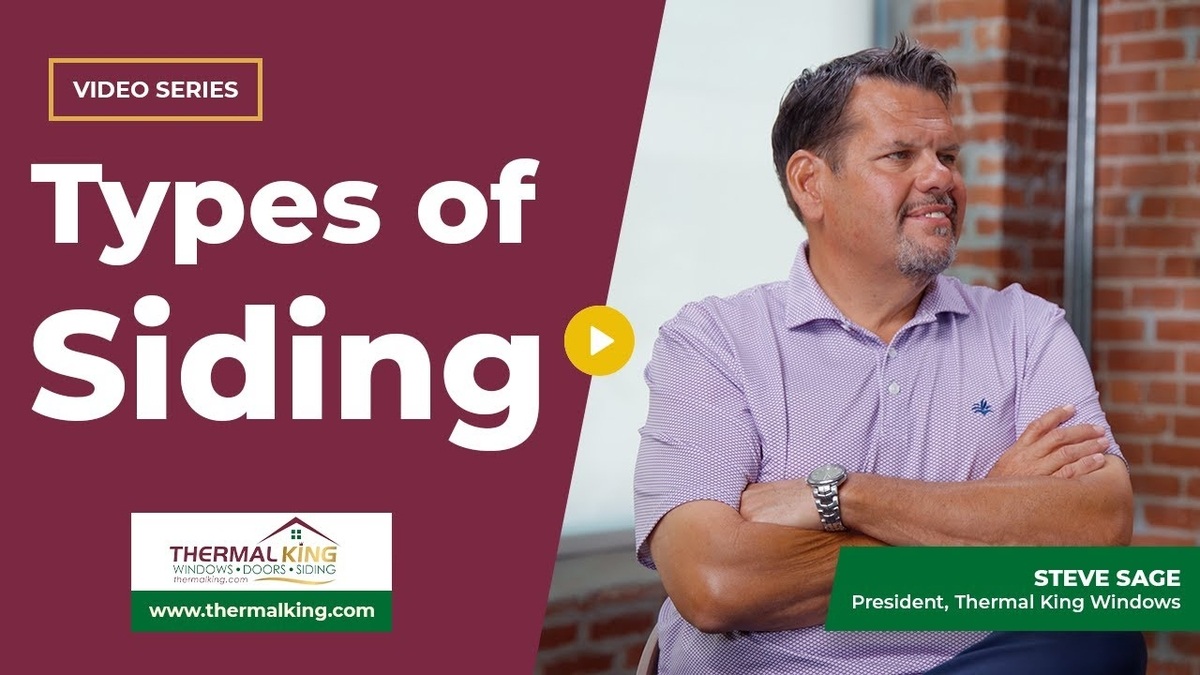When it comes to choosing the right siding for your home, there are many options available and choosing the right siding can feel overwhelming. Two popular options are vinyl siding and steel siding.
At Thermal King, we’ve been helping homeowners choose the right siding for their home and budget for over two decades! To make an informed decision, it’s important to understand the basics of both materials, as well as their advantages and disadvantages.
In this article, we will compare vinyl and steel siding, taking into account their durability, maintenance requirements and cost implications. By the end, you will have a better idea of which option is best suited for your home.
Understanding the Basics of Home Siding
What is Vinyl Siding?
Vinyl siding is a synthetic material made from polyvinyl chloride (PVC). It has become a popular choice for homeowners due to its versatility, low maintenance requirements, and affordability. Vinyl siding is available in a wide range of colors and styles, allowing homeowners to choose a look that complements their home’s architecture.
One of the key advantages of vinyl siding is its resistance to rot, moisture, and insects, making it a long-lasting option for homes. Additionally, vinyl siding is relatively easy to install, which can help reduce labor costs for homeowners. It is also a sustainable choice, as many manufacturers offer recycled vinyl options, reducing the environmental impact.
What is Steel Siding?
Steel siding, as the name suggests, is made from galvanized steel or a combination of steel and other materials. It offers excellent strength and durability, making it a great option for homes in areas with harsh weather conditions. Steel siding is typically available in a variety of finishes, including paint and faux wood textures, giving homeowners flexibility in design.
Another benefit of steel siding is its fire resistance, providing an added layer of protection for homes in wildfire-prone regions. While steel siding may require more maintenance than vinyl, such as repainting to prevent rust, its longevity and durability make it a popular choice for homeowners looking for a sturdy and protective siding option.
The Pros and Cons of Vinyl Siding
Benefits of Vinyl Siding
One of the main advantages of vinyl siding is its low maintenance requirements. Unlike wood siding, vinyl does not need to be repainted or stained regularly. It is highly resistant to moisture, fading, and insect damage. Vinyl siding also offers good insulation properties, helping to reduce energy costs. Additionally, vinyl is a cost-effective option, making it a popular choice for budget-conscious homeowners.
Moreover, vinyl siding comes in a wide range of colors and styles, allowing homeowners to customize the look of their homes to suit their preferences. It is also relatively easy to install, which can save both time and money during the renovation process. Another benefit of vinyl siding is its durability; when properly installed and maintained, vinyl siding can last for decades without needing replacement.
Drawbacks of Vinyl Siding
Despite its many advantages, vinyl siding does have some drawbacks. It can be easily damaged by impact or extreme weather conditions. High temperatures can cause vinyl to expand and buckle, while freezing temperatures can cause it to become brittle. Additionally, the color of vinyl siding may fade over time due to prolonged exposure to the sun’s UV rays.
The Pros and Cons of Steel Siding
Benefits of Steel Siding
Steel siding is known for its exceptional durability and strength. It is highly resistant to impact, making it a great choice for homes located in areas prone to hail or strong winds. Steel siding is also fire-resistant, adding an extra layer of protection to your home. With proper maintenance, steel siding can last for decades, making it a long-term investment for homeowners.
Furthermore, steel siding comes in a variety of colors and styles, allowing homeowners to customize the look of their homes to their liking. This versatility makes steel siding a popular choice for those looking to enhance the curb appeal of their properties. Additionally, steel siding is eco-friendly as it is recyclable, making it a sustainable option for environmentally conscious individuals.
Drawbacks of Steel Siding
Compared to vinyl siding, steel siding requires more maintenance. It should be regularly inspected for signs of rust and corrosion, and any repairs or touch-ups should be done promptly. Steel siding can also be more expensive than vinyl, both in terms of material and installation costs. Lastly, it is important to note that steel siding can be prone to dents and scratches, especially if not properly cared for.
Another potential drawback of steel siding is its susceptibility to fading over time, especially when exposed to harsh weather conditions. This may require homeowners to repaint or refinish their steel siding periodically to maintain its aesthetic appeal. Additionally, the weight of steel siding can make installation more labor-intensive compared to other siding materials, potentially leading to higher installation costs.
Comparing Vinyl and Steel Siding
Durability Comparison
Both vinyl and steel siding are durable options; however, steel siding offers superior strength and resistance to impact compared to vinyl. In areas like Kansas City and Omaha with extreme weather conditions or if you prioritize long-term durability, steel siding may be the better choice for you. Vinyl siding, on the other hand, is still a durable option for most homes if properly maintained.
Steel siding is known for its exceptional durability, making it a popular choice for homeowners looking for a long-lasting exterior cladding solution. The strength of steel siding provides added protection against hail, wind, and other harsh elements, ensuring that your home remains secure and well-insulated. Additionally, steel siding is fire-resistant, offering an extra layer of safety for your property.
Maintenance Comparison
When it comes to maintenance, steel siding has the upper hand. Its low maintenance requirements make it an attractive option for homeowners who want to spend less time and effort on upkeep. Vinyl siding, while durable, requires periodic inspections for rust and corrosion, as well as occasional touch-ups. Regular maintenance is key to prolonging the lifespan of vinyl siding.
Cost Comparison
In terms of cost, vinyl siding is generally more affordable than steel siding. The lower material and installation costs make vinyl a budget-friendly option for homeowners. Steel siding, although more expensive upfront, may be a worthwhile investment for those seeking long-term durability and protection.
While the initial cost of steel siding may be higher, its exceptional durability and longevity can result in cost savings over time. With minimal maintenance and repairs, steel siding can outlast many other siding options, making it a cost-effective choice for homeowners looking for a durable and reliable exterior cladding solution. Consider your budget and long-term goals when deciding between vinyl and steel siding for your home.
Expert Siding Replacement in Kansas City & Omaha!
Choosing between vinyl and steel siding ultimately depends on your specific needs and priorities. Vinyl siding offers affordability, low maintenance requirements, and a wide range of design options. However, it may not be as durable as steel siding and can be prone to damage. On the other hand, steel siding provides exceptional strength and longevity, making it a preferred choice for homes in harsh weather conditions.
If you’re ready to improve the energy efficiency of your home with brand new siding, contact the experts at Thermal King today!




